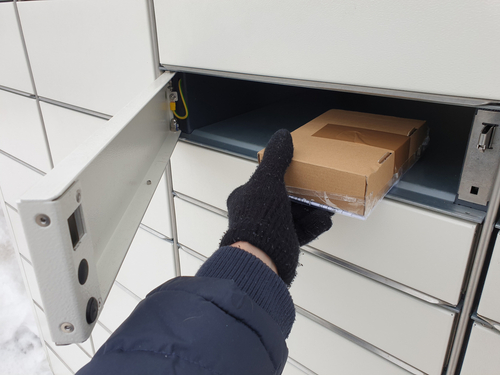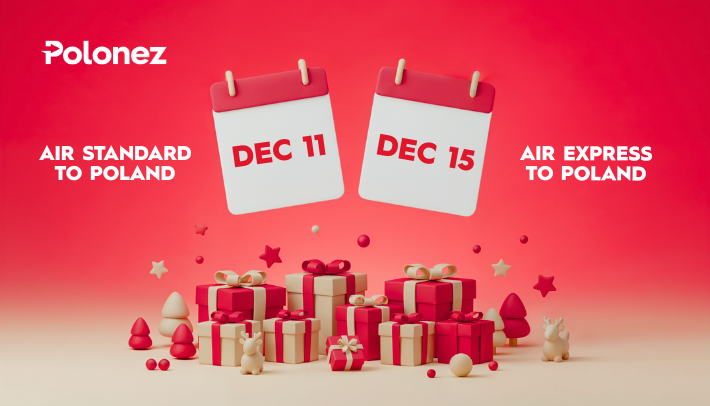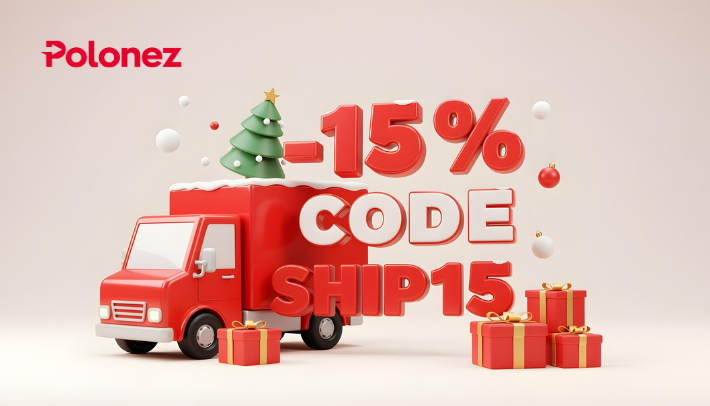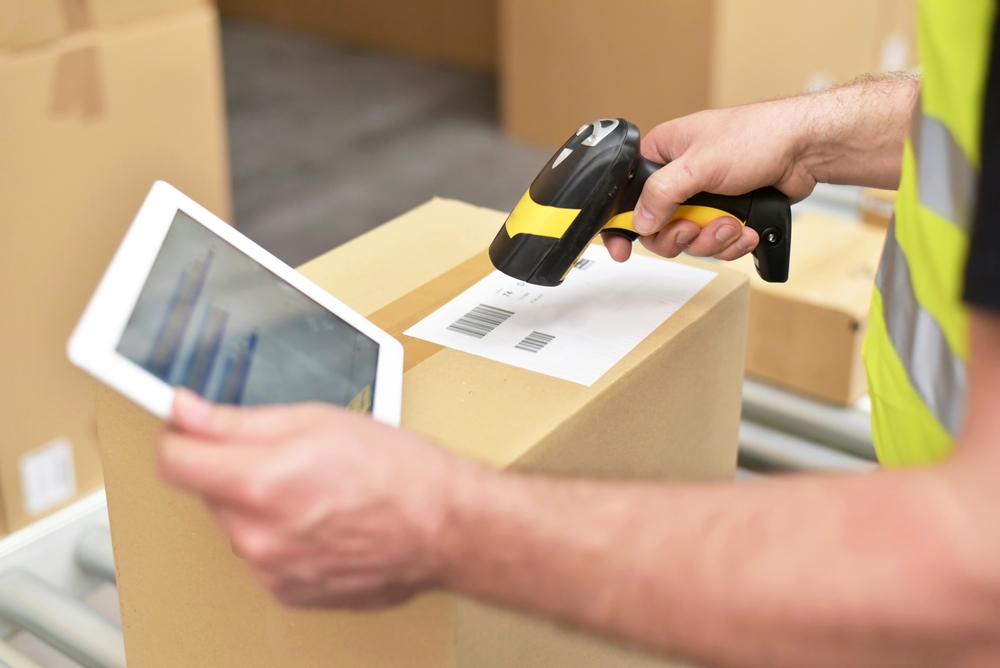Jun 23, 2025
Ship to Poland: Today’s Logistics Puzzle Solved

If you want to ship to Poland, it involves much more than just a simple fee. Understanding how the puzzle pieces fit together is important for smart budgeting and decision-making.
One driver is your package's weight and dimensions. Carriers charge based on either the actual weight or dimensional weight, which accounts for the space your package occupies, even if it's light.
A carrier will use whichever figure is greater. This means a large, lightweight item could be expensive if its volumetric weight surpasses its actual weight. However, some companies prioritize actual package weight, offering a notable advantage.
The package’s origin and destination play a role. Shipping from a U.S. coastal city to a central-hub city in Europe, or specifically Poland, will differ in cost compared to sending something from a landlocked American state. If your final destination is a remote town, you might incur additional last-mile delivery fees.
Who you partner with will impact your price. Expedited services, like express air freight, demand higher rates due to their speed and priority handling.
In contrast, economy options, such as sea freight or slower parcel services, are more budget-friendly. This tradeoff highlights how faster delivery means a higher cost.
Rates vary considerably among major players in the shipping arena, as well as specialized providers. Each has distinct pricing structures, making comparison shopping the key to optimizing your costs.
Fuel surcharges are another add-on to these international shipping expenses. They can fluctuate with global oil prices.
“Consumers around the world are increasingly making purchases online,” according to a report published by the U.S. Postal Service’s Office of Inspector General. “International ecommerce… surged during the COVID-19 pandemic. Even in an uncertain global economy, international ecommerce is expected to continue to increase at rates of up to 20 percent annually until 2030.”
Ship to Poland Costs and Service Levels
While weight, distance, and carrier are important for any individual or business owner who wants to ship to Poland, other factors can influence your shipping bill. One overlooked aspect is customs duties and taxes.
Although usually paid by the recipient in Poland, these include the Value Added Tax, or VAT, and any applicable excise taxes. This all contributes to the total “landed cost” of your shipment. You need to factor-in these expenses from the outset.
The interplay of this immense mailing ecosystem means there isn't a universal shipping price. Each shipment is unique and must be evaluated based on its specific characteristics and your personal priorities.
You'll have to decide between speed and savings. Specifically, when it comes to using air services:
-
Express air services are typically your fastest route. They typically deliver within 1 - 5 business days. They offer rapid transit, but naturally they come with a premium price tag. A 10-pound package might cost over $140.
-
Economy/standard air services can strike a balance. They offer a quicker delivery than sea freight but at a more palatable cost than express. These usually deliver within 5 - 14 business days. For larger air cargo, minimum charges apply, but per-kilogram rates become more favorable as your shipment size increases.
“The correlation raises this question: To what extent do changes in shipping costs lead to changes in import prices?,” states the Federal Reserve Bank of Boston. “We find that the pass-through increases with the severity of shipping cost surges. In the recent periods of soaring costs, the impact of those costs on US import price inflation increased significantly.”
Cost and speed are important concepts in understanding the shipping ecosystem. Your cheapest options always entail longer transit times, while the fastest services command higher prices. Your decision should align with your needs.
Sea Freight is the Economical, Longer Journey
For large, heavy, or non-urgent shipments, sea freight stands out as the most cost-effective solution to ship to Poland. However, this affordability comes with a trade-off: significantly longer transit times.
You can expect your goods to be in transit for anywhere from 4 - 8 weeks, with some estimates ranging from 20 - 45 days or even more. Your typical shipping option for sea freight will quote a transit of 15-25 business days, leveraging consolidated services.
For larger cargo, Less than Container Load, or LCL, rates are typically quoted per cubic meter. This method is ideal when you don't have enough cargo to fill an entire shipping container.
If you're looking to ship vehicles, sea freight is the standard. A good example of transporting a sedan in a container might be around $1,750, while an SUV shipped via Roll-on/Roll-off (RORO) could be upwards of $1,200 - $1,300. This showcases the efficiency of sea transport for large, valued items.
Overall, one fundamental rule remains: the cheapest services will involve longer delivery times, while premium services demand higher prices for speed. This means shippers must clearly define their priorities for each shipment.
For non-urgent and price-sensitive goods, economy services are popular. For timely consignments, express options are the top choice. Just know that there's no single service that perfectly satisfies both speed and cost for every package.
“The shipping industry may be one of the oldest in the world, but the global economy would not exist without shipping containers,” according to ShippingCollege. “Shipping is considered one of the most important industries there is. A surprising 90% of everything still comes and goes on a ship by sea.”
It adds: “Shipping is affordable. In fact, it’s still one of the most affordable ways to transport cargo.”
What Causes Delays for International Shipping Customers
When any U.S. business owner, shipping manager, or consumer wants to ship to Poland, they should remember that transit times aren't set in stone. They’re influenced by a lot of variables beyond just your chosen service level.
Even within express air freight, there's a range. While some services promise 1 - 3 day delivery, others might take 2 - 5 business days or even 4 - 8 days for different express options. Standard or economy-air services typically deliver within 5 - 15 business days. Sea freight carries the longest duration, often 4 - 8 weeks.
There are a lot of reasons for variability and unexpected delays, including:
-
Customs clearance. This is a major variable. The process at Polish customs can range from a few days to several weeks, depending on the shipment's complexity, the accuracy of your documentation, and the overall volume of goods being processed. Incorrect or incomplete paperwork is a common reason for hold-ups.
-
Port congestion. This is a growing concern globally and at Polish ports like Gdansk and Gdynia. Congestion can lead to significant delays; for example, GoComet reported on-time arrival rates as low as 37% for shipments in the Poland region due to such issues. Global port congestion, especially in major European hubs, can create cascading delays for cargo headed to Poland.
-
Route and mode. Direct shipping routes are inherently faster than those that involve transshipments, as extra handling points can add time and potential for delays.
-
Seasonality. Peak shipping times, particularly around holidays, can strain carrier capacities, leading to extended transit times and potential delays for everyone.
Keep in mind today’s service types, transit times, and features:
|
Service Type |
Typical Transit Time Range |
Features |
|
Express Air Parcel |
1-8 business days |
Fastest, Good Tracking, Door-to-Door |
|
Standard Air Parcel |
6-17 business days |
Balanced Speed/Cost, Regular Tracking |
|
Economy Air Parcel |
10-27 business days |
Cheapest Air, Limited/Basic Tracking |
|
Sea Freight (LCL: Less than Container Load) |
15-25 business days to 4-8 weeks (general) |
Most Economical for Bulk, Slowest |
|
Air Freight (Cargo) |
2-10 business days |
For Larger Shipments, Variable Tracking |
Smarter Shipping Strategies to Ship to Poland
Given the unpredictable nature of global shipping markets and ship to Poland priorities, it's important for consolidated shippers to adopt proactive, flexible strategies. This helps mitigate risks and manage expenses when sending goods from the United States to Europe, and especially to Poland.
One strategy is to stay informed. The market changes rapidly, so partnering with reliable consolidated shippers, freight forwarders, and logistics providers that offer regular market intelligence and real-time tracking is invaluable.
Leveraging technology, such as artificial intelligence-driven logistics platforms, can provide even better visibility and insights. This helps you spot bottlenecks before they become issues.
You should also plan for longer and more variable lead times. With disruptions, like impromptu diversions in the Red Sea and delays at European ports, standard transit times can be extended. Build additional buffers into your delivery schedules and maintain open communication with customers and vendors regarding these possibilities.
Diversifying your shipping options is another smart move. Relying on a single carrier, route, or port can be risky in a volatile market.
Instead, explore multiple shipping routes, various entry points into Europe, and a portfolio of carriers. This approach can improve resilience, providing you with alternatives if your primary option faces disruption.
Additionally, you should review and adapt your shipping contracts. Traditional long-term, fixed-rate agreements might not offer the best value or flexibility in today’s environment. Evaluate existing contracts and consider incorporating spot-rate strategies or more flexible terms where appropriate, especially given the risk of contract non-compliance during global crises.
The Role of Freight Forwarders and Consolidators
Freight forwarders and consolidators are important intermediaries involved in the mailing process when you decide to ship to Poland. They offer a range of services that boost convenience, minimize costs, and simplify the world of global logistics, particularly for individuals, small to medium businesses, and e-commerce enterprises.
Consolidated shipping is a logistics strategy involving multiple smaller shipments from different consignors, all destined for the same region, into a single, larger shipment. This might be a full container load or a full truckload for the main leg of the journey. This is beneficial for shippers whose cargo volume isn't enough to fill an entire container or truck on their own.
The benefits for U.S. customers shipping to Poland are significant:
-
Cost Savings: This is probably the most compelling advantage. By sharing space in a larger shipment, individual shippers pay only for the volume or weight their goods occupy rather than the entire unit. Some companies claim that package consolidation can lead to savings of up to 60 - 80 percent on standard international shipping rates, making global shipping much more accessible and economically viable.
-
Improved Efficiency: Consolidation can optimize transportation routes and reduce the number of individual handling points a package goes through, leading to fewer delays and a lower risk of damage.
-
Accessibility for Smaller Loads: Consolidation services enable individuals and small businesses to ship smaller quantities of goods internationally at affordable rates. Many consolidators also offer U.S. addresses, allowing customers throughout Europe and in Poland to purchase from multiple U.S. retailers, have items sent to a U.S. address, and then consolidate them into a single shipment.
Ship to Poland Mechanics and Consolidation
Consolidation principles apply across various transport modes to ship to Poland. For road freight, Less-than-Truckload (LTL) shipping models have multiple shippers’ cargo sharing space on the same truck.
In air freight consolidation, shipments from customers are grouped into a single air cargo load, leveraging the consolidator's relationships with airlines to secure more favorable rates. The maritime equivalent is Ocean LCL (Less-than-Container-Load) shipping, where goods from multiple shippers are combined to fill a shared container.
This is a great model for shippers with regular small consignments that don't justify a full truck or container, those seeking cost-effective international air or sea transport, and businesses aiming to reduce operational costs without compromising on service.
Technology is also increasingly important. Some third-party platforms offer tools for optimized packaging decisions and automating order consolidation – sometimes at the point of customer order placement. This provides real-time rate comparisons and enables global shipment tracking.
While this makes the consolidation process far more efficient and transparent for users, ultimately the rise of consolidated shipping services and user-friendly online platforms has democratized international shipping. It has lowered barriers for U.S. small businesses looking to enter the European and Polish marketplaces, making things considerably easier and more affordable for Polish consumers and businesses to source goods from the United States.
This fosters more international trade at a granular level – a trend that’s forecasted to continue benefiting both sides of the Atlantic Ocean.
Polonez America
Polonez America specializes in international shipments from the United States to 160 countries worldwide so you can ship to Poland. We offer parcel shipment via ocean or air, vehicle shipment, commercial LCL (Less than Container Load) and FCL (Full Container Load) shipping.
Our comprehensive range of services means customers can initiate package or commercial shipments from any of Polonez's authorized shipping outlets within the United States, which are then transported to our headquarters for sorting. Customers can send packages from authorized shipping outlets in the United States or by sending them via UPS, FedEx, or U.S. Postal Service to Polonez America's headquarters in Port Reading, NJ.
Polonez America is your expert in the resettlement process, collaborating with European partners for parcel services, customs, and delivery within Poland and other countries. We earn client trust through integrity and professionalism by delivering the highest quality service at the most competitive price.
Recommended to you

News
Dec 2, 2025
Don’t Miss Christmas Delivery!
CHRISTMAS IS JUST AROUND THE CORNER. There’s still time to send your holiday parcels to Poland — but the shipping deadlines are approaching quickly!

News
Dec 1, 2025
15% OFF Online Shipments
December Holiday Promo

News
Nov 24, 2025
How the Middle Warehouse Ensures Quick Delivery to Poland
U.S. online shops are reaching more buyers in Europe every year thanks to quick delivery to Poland and other countries.




